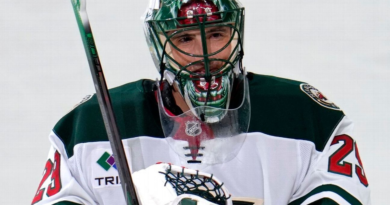Record 9 MLB teams docked $311M in luxury tax
A record nine MLB teams were over the luxury tax threshold for 2024, according to a memo sent to teams on Friday and obtained by ESPN.
The result was a record $311 million paid in penalties, led by the Los Angeles Dodgers who are paying $103,016,896. The New York Mets were next at $97,115,609. The Chicago Cubs were taxed the least, paying $570,309.
The six other teams, along with their penalties, who had Competitive Balance Tax (CBT) payrolls higher than $237 million, which triggers the tax, include the New York Yankees ($62,512,111), the Philadelphia Phillies ($14,351,954), the Atlanta Braves ($14,026,496), the Texas Rangers ($10,807,196), the Houston Astros ($6,483,041) and the San Francisco Giants ($2,421,788).
The Dodgers, Mets, Yankees and Phillies were taxed at a base rate of 50% because they’ve been over the tax in three or more consecutive years. The Braves and Rangers exceeded the threshold for the second consecutive year, earning a 30% tax rate. The Astros, Giants and Cubs were first time offenders, earning a 20% tax on overages.
If a team dips below the threshold in any one season, its tax rate resets to 20%.
Because the Dodgers, Mets and Yankees were also all $60 million or more over the $237 million threshold, they were taxed an additional 60%, making their marginal rate at the maximum 110%. Meanwhile, the Phillies, Braves, Rangers and Astros were all between $20 million and $40 million over the threshold, triggering an added 12.5% tax to their marginal rate.
A team’s CBT figure is determined using the average annual value of each player’s contract on the 40-man roster, plus any additional player benefits. Every team’s final CBT figure is calculated at the end of each season. The Dodgers’ CBT payroll for 2024 was $353,015,360, while the Cubs were just over the threshold at $239,851,546.
The first $3.5 million of proceeds is used to fund player benefits. Fifty percent of the remainder go to player retirement funds, while the other half goes into the Supplemental Commissioner’s Discretionary Fund and is redistributed among teams that receive revenue sharing.




